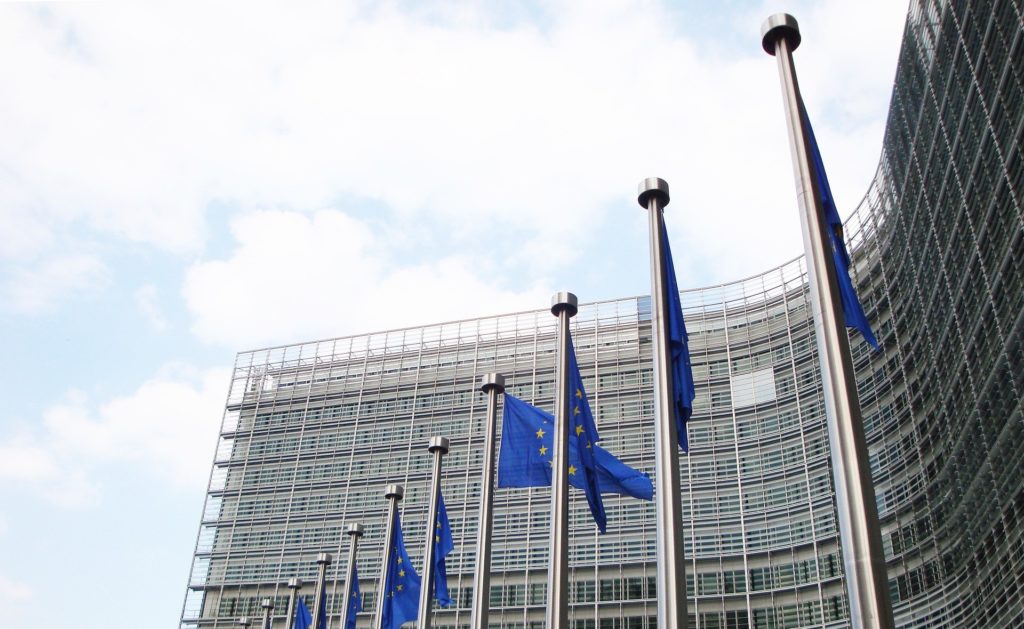The EU must include a solidarity clause for political attacks from illiberal parties in its next treaty.
In Rocky 4, the film’s eponymic hero begins the final fight with his nemesis by taking a complete and total pounding. For almost 11 rounds, Rocky is beaten to within an inch of his life by Russian pugilist Ivan Drago.
If the European Union’s current situation was ever to be exemplified by one of Sylvester Stallone’s fine movies, it would be Rocky 4 at what looks like the point of no return for the protagonist.
Between Brexit, recovery from the Migrant Crisis, and growing internal dissent, the EU is facing its biggest series of challenges yet, with more than the normal amount of commentators predicting its downfall. Still, these threats pale in comparison to the EU’s most pressing wolf at the door; incoming political attacks from illiberal countries. Astute followers of international relations may know these attacks as sharp power, or the expression of illiberal influence in democratic countries by corrupting or subverting democratic systems like the press or the internet.
Though an objective number of political attacks is virtually impossible to track or even estimate, the EU’s cyber-defence agency ENISA, estimated last year that state-sanctioned cyberattacks account for one-third of all cyber-attacks inbound to the EU alone.
Outside of the west, this practice is referred to as political warfare, a budding military wing of authoritarian superpowers like Russia and China that target Western actors; the EU is one if not the major target of these attacks. The EU has known for some time that illiberal elements have targeted its member states, but countering those elements has largely remained a member-state competency, Brussels-speak for leaving responsibility of defending against these attacks to the member states.
This strategy is a failing one, not just because nearly all EU member states have been attacked in recent years, but because the nature of these attacks creates an incentive for marginalized political parties to welcome and coordinate attacks with the perpetrators.
If the EU is serious about dealing with this threat it would do well to integrate defence from illiberal influence on its member states and EU institutions by extending its already existing solidarity treaty for political attacks and explicitly inserting it into the next EU Treaty or Constitution.
Planned Obsolescence
Whether by design or by chance, the EU has always reinvented itself with every major treaty amendment in its history. Marked by the cities of their signing, each treaty from Paris to Maastricht to Lisbon has slowly but surely moved Europe closer to Churchill’s wish of a United States of Europe.
More realistically, each treaty has pushed the EU towards a more federalised system of governance, with each treaty granting the EU more and more responsibilities and powers.
A new European treaty then is the perfect place to introduce a mutual defence pact against political attacks. The EU already has a mutual defence clause in its treaties, specifically, Article 42, Section 7. It, like NATO’s Article 5, stipulates that any attack on an EU member state triggers a responsibility by other members to come to the aid of the attacked member state. Article 42.7 has been used only once since its inception; in November 2015 after the ISIS terror attacks in Paris.
France’s decision to use Article 42.7 was historic, but it was more significant because of its decision to not use the more terror-specific solidarity agreement: Article 222 of the Treaty of the Functioning of the European Union. Article 222 would work exactly like Article 42.7, but invoking it would have given the EU commission oversight over the coordinated response, something France wanted to avoid.
While this precedent of choosing to use a solidarity article that keeps the EU out of the relevant affairs may not bode well for a new article specifically calling for defence against political attacks, it also operates on a different level than counter-terrorism solidarity. ISIS claimed responsibility for the November 2015 attacks but was sure to mention that the target had been France; the EU as a target was nowhere to be found.
Political attacks against EU member states, meanwhile, only target member states as a means to weaken the EU. That means that political attacks should fall under the purview of the EU’s institutions, not only the member states whose elections may be at risk or whose fringe parties break electoral finance law.
Currently, there is no space for political attacks to be responded to within EU law, as both Articles 42.7 and 222 lack the scope and definition to address it. But change is still possible.
The Next Round
There already exists clamour for a renewal of European law, whether as another EU treaty or as a European constitution, building an article of solidarity against political attacks may very well be part of that push. A new treaty may not go as far as previous versions have in the past, if only because the EU is looking, and will likely continue to look for, its identity in a post-Brexit environment.
Still, what better way to consolidate a weakened EU, in both political and strategic terms, than strive for a renewal based on the engine of the EU, its laws?
Finding consensus for an article to protect against political attacks is also not a fantasy. On top of the EU’s acceptance of the problem, there are more EU member states who actively counter illiberal movements than those who espouse them. The EU parliament elections last month also showed that while illiberal, anti-EU elements in the parliament gained ground, they were not able to best pro-EU parties.
What would a political attack solidarity clause look like, however? The jury is still out on whether a cyber-attack or attempt to sway an election is cause for kinetic response; the US did not retaliate militarily to Russian election-meddling in 2016, but earlier this year, Israel prevented a cyber-attack originating in Gaza by way of bombing the physical location of the Hamas hacker.
The EU would more than likely prefer the former option, if only to avoid a conventional response by Russian forces and the potential involvement of NATO or nuclear weapons.
Retaliation for and countering a political attack under this new article could follow a Baltic model; Estonia, Latvia, and Lithuania, who are threatened the most by a belligerent Kremlin, are remarkably capable at stopping Russian disinformation coming across their borders and could lead the way in the treaty formulation process.
Their knowledge of countering the illiberal influence onslaught can also supply the blueprints for what action can be taken after an attack occurs, further legitimizing the notion of an article designed to respond to political attacks.
The 12th Round
The likelihood for an article such as this to be included in the next round of EU treaties, whenever that may be, is genuinely unknown.
While it would certainly be considered as yet another step in the federalization of Europe and face staunch opposition from EU parties which benefit from illiberal influence, it does remain in the EU’s interest to be strong in the face of illiberal opposition.
It is also the case that pro-EU parties will likely continue to control the EU agenda and law well beyond the lifecycles of populist governments that contest them.
That being said, it would be a tremendous blunder for the EU to not consider adding a solidarity clause specifically for political attacks as this type of belligerence are not a fad of the times, they are here to stay. Illiberal entities are just beginning to employ these divide-and-conquer tactics, will only get better with time, and already have a large lead against the EU.
A solidarity clause against political attacks will help the EU proper protect itself from subversive influence and institutional degradation by illiberal powers.
Waiting any longer may just land the final knockout blow that Rocky never took.
Alessandro Regio


